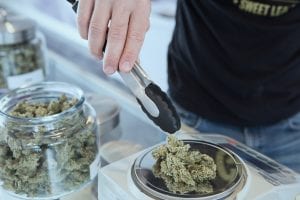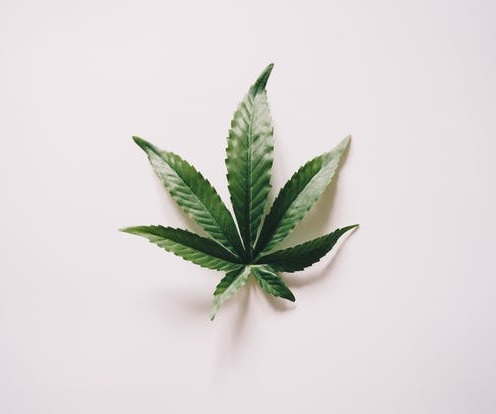It is true that there is a connection to be made between an increase in marijuana legalization and a decrease in drug-related crimes.
As of 2022, only two states in the Union do not allow any legal form of marijuana use whatsoever. Of the remaining 48 states, 11 allow only the use of CBD (cannabidiol) oil. That leaves 37 states that either allow for medical use or outright adult use, widely known as “recreational use.” This is a shocking number to many people because as early as 1995, no states supported the legalization of medical marijuana. Less than 30 years later, most U.S. states support some form of legal marijuana use. This also means that drug crimes in America are changing—at least by the numbers. Here’s how.
Legal Problems
It turns out that marijuana legalization does not solve all the legal problems associated with the drug. While some are hoping that 2022 is the year the federal government signals a move toward making legalized marijuana the law of the land, others who are pro-marijuana are still worried about the kind of things you might expect: profit margins and taxes. Alaska boasts a thriving cannabis market, but many are worried about what would happen if the federal government gives the green light for businesses to begin building empires and crossing state lines. Theoretically, this would cause the statewide mom and pop dispensaries to lose the battle to future Walmarts and Amazons of the marijuana economy that could transcend state boundaries.
There’s also the tricky scenario about crimes, which may be different from what you might expect. In a surprising move, New York State officials are planning to limit marijuana dispensary licenses to people convicted of weed-related crimes before the drug was legalized. This would be the equivalent of banning someone from their liquor license because they were involved in an alcohol-related crime during the Prohibition era of the early 20th century.

In fact, alcohol is a good comparison to dispel some of the assumptions people have about the supposed “free for all” in states where the drug is fully legalized. For example, marijuana users in California must be at least 21 years old, cannot smoke in public or drive while under the influence, give or sell marijuana to minors, or buy more than 1 ounce per day. What’s more, buying marijuana at a dispensary means being subjected to at least a 15% state excise tax, a business tax, state sales tax, and more. What once sounded like a good deal is now much higher at the checkout line. All this often leads many people back to the black market where they can buy their marijuana. Of course, all these actions equate to the real possibility of being convicted of crimes related to marijuana, even in a fully legal state. Just like alcohol, legality does not mean a free for all.
Violence and Well-Being
It is true that there is a connection to be made between an increase in marijuana legalization and a decrease in drug-related crimes. This might seem apparent, as the connection is largely due to the fact that crimes that once existed (like possession) simply do not exist in legalized states. But what about a more difficult question, such as drug-related violence? Historically, marijuana has not been caricatured with drug violence to the level of other drugs like cocaine or methamphetamines.
You could make the case that since legalized states allow for a safe, regulated way to purchase marijuana, it avoids scenarios where buyers must find sellers who might have a criminal history and sell other illicit drugs besides marijuana. Avoiding interactions with those people could potentially decrease drug violence since fewer dealer altercations take place, and consumers can be a little more confident that their purchase is not laced with illicit substances that might cause violence as a side effect.
All of that is hypothetical and speculative, though. One researcher is sure that marijuana is not exempt from the problem of drug violence, and this has nothing to do with whether the drug is legalized or not. Instead, it has to do with the fact that marijuana today is more potent than ever before, with THC contents at around 2% back in the 1970s, compared to 20% to 25% today.
This brings up the overarching issue of well-being that legalization is incapable of solving. What is clear about marijuana use is the potential for causing psychosis in some users. THC is a psychoactive substance linked to psychosis symptoms, and psychosis is a high-risk factor for violence. As you might imagine, the domino effect continues when you start thinking about issues of dependency and chronic addiction.
Because THC is a euphoria-inducing substance, higher in potency than ever before, the brain’s reward system is more likely than ever before to respond by developing a dependency on the drug. No effort to legalize a drug or substance can make promises that dependency will not occur. We can take alcohol as the prime example of this, with every state in the country having both a legal status of alcohol and treatment facilities for alcohol addiction. The potential for abuse does not go away with legality, and the same can be said for marijuana.
Sources:
Forbes Magazine. (2022 Jan 10). Where Is Cannabis Legal? A Guide To All 50 States. Retrieved https://www.forbes.com/sites/willyakowicz/2022/01/10/where-is-cannabis-legal-a-guide-to-all-50-states/?sh=6c5f0f83d19b
National Conference of State Legislature. (n.d.) Marijuana Deep Dive. Retrieved https://www.ncsl.org/bookstore/state-legislatures-magazine/marijuana-deep-dive.aspx
New York Post. (2022, March 9). New York to Limit Marijuana Permit Eligibility to Those Convicted of Pot-Related Offenses. Retrieved https://nypost.com/2022/03/09/ny-to-limit-marijuana-permit-eligibility-to-those-convicted-of-pot-related-offenses/
Delphi Health Group. (n.d.). Effect of Marijuana Legalization on Addiction Rates in California. Retrieved https://delphihealthgroup.com/marijuana/legalization-addiction-rates/
Delphi Health Group. (n.d.). Marijuana Use Statistics Around the World (2019). Retrieved https://delphihealthgroup.com/marijuana/marijuana-global-use-statistics/
Delphi Health Group. (n.d.). Drug Sentences Across America. Retrieved https://delphihealthgroup.com/drug-sentences-across-america/
Delphi Health Group. (n.d.). Help for Domestic Violence & Substance Abuse (Alcoholism & More). Retrieved https://delphihealthgroup.com/treatment-guide/domestic-violence-and-drugs/
NIH. (2019 March). Marijuana is More Dangerous Than You Think. Retrieved https://www.ncbi.nlm.nih.gov/pmc/articles/PMC6461328/
Delphi Health Group. (n.d.). Do Drugs Cause Psychosis? Retrieved https://delphihealthgroup.com/addiction/psychosis/
NIH. (2009 December). High-potency Cannabis and the Risk of Psychosis. Retrieved https://www.ncbi.nlm.nih.gov/pmc/articles/PMC2801827/
Delphi Health Group. (n.d.). Marijuana Abuse: Addiction Potential, Symptoms, and Effects. Retrieved https://delphihealthgroup.com/marijuana/
Mayo Clinic. (2020, November, 18). Marijuana. Retrieved https://www.mayoclinic.org/drugs-supplements-marijuana/art-20364974


Join the conversation!